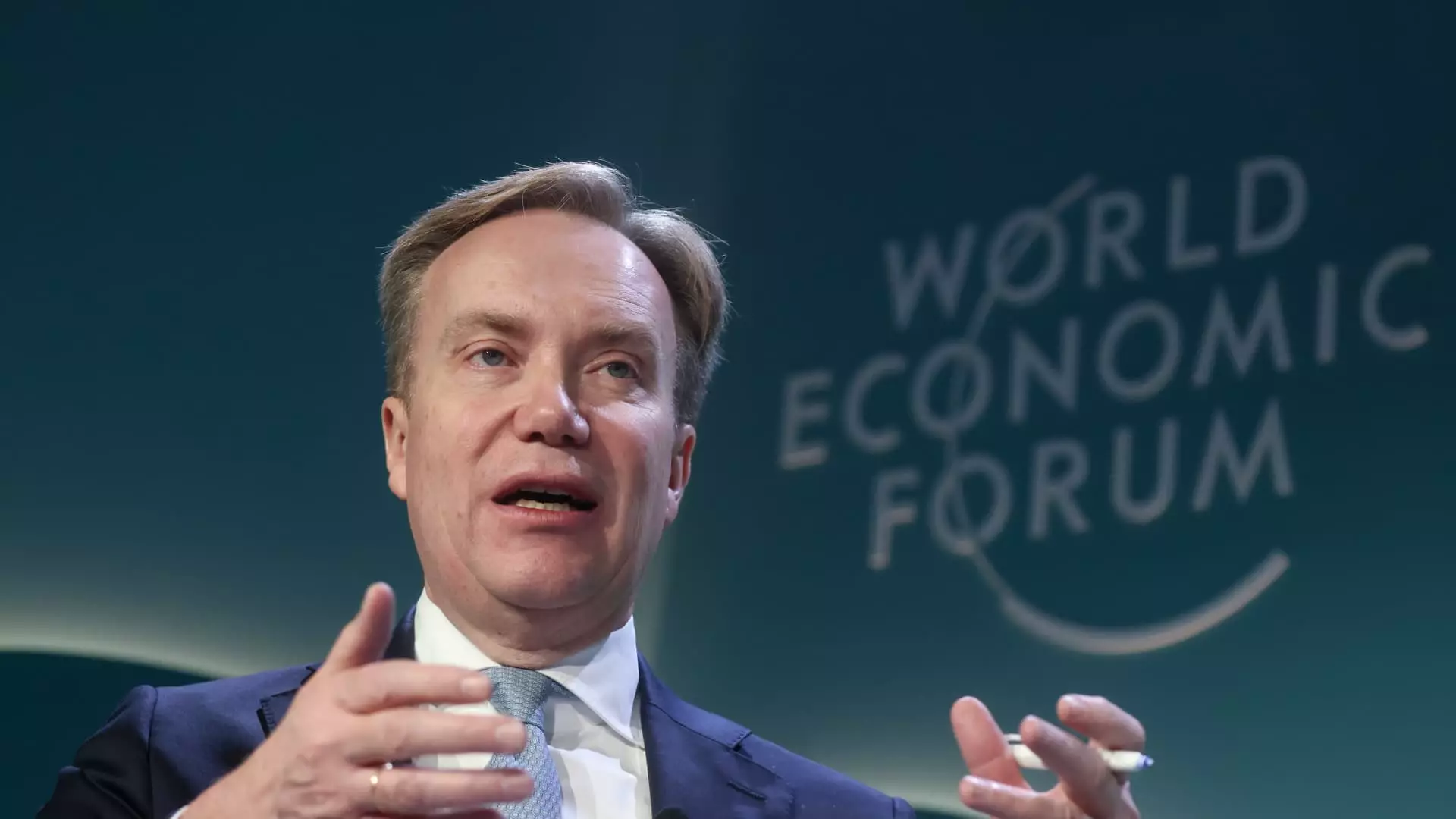The president of the World Economic Forum, Borge Brende, recently painted a bleak picture of the global economy, warning that without appropriate economic measures, the world could be looking at a decade of low growth. Speaking at WEF’s “Special Meeting on Global Collaboration, Growth and Energy for Development” in Riyadh, Saudi Arabia, Brende highlighted the fact that global debt ratios are approaching levels not seen since the 1820s. The risk of “stagflation” looms over advanced economies, suggesting that the global economic landscape is entering a period of uncertainty and potential instability.
According to Brende, the global growth estimate for this year stands at around 3.2%, a significant drop from the trend growth rate of 4% that the world had been accustomed to for decades. This downward trend in growth raises concerns of a potential slowdown reminiscent of the 1970s in some major economies. The uncertainty surrounding the global economy is further exacerbated by the looming threat of a trade war, which Brende warns could have dire consequences if countries fail to cooperate and continue trading with each other.
One of the major obstacles to global economic stability, according to Brende, is the escalating global debt situation. With debt levels nearing 100% of the global GDP, Brende emphasized the need for governments to address this issue and take the necessary fiscal measures to avoid a recession. The high debt levels in countries like China and the United States pose a significant risk to the global economy, as loose fiscal policies can lead to higher interest rates and funding costs worldwide, exacerbating existing vulnerabilities.
Brende also highlighted the potential role of generative artificial intelligence as an opportunity for the developing world to navigate the challenges posed by the global economy. By leveraging AI technologies, developing countries could potentially find innovative solutions to economic issues and enhance their competitiveness on the global stage. Embracing technological advancements could be a key strategy for addressing the complexities of the global economy and driving sustainable growth in the long term.
One of the most pressing risks facing the global economy, according to Brende, is the geopolitical uncertainty and tensions that have been on the rise. Recent conflicts between Iran and Israel have underscored the unpredictability of the global landscape, with the potential to escalate and disrupt global markets. Brende warned of the potential consequences of such conflicts, citing the possibility of a sharp increase in oil prices that could have devastating effects on the global economy.
The critical outlook presented by Borge Brende sheds light on the challenges and uncertainties facing the global economy in the coming years. With concerns about low growth, escalating debt levels, geopolitical risks, and the need for innovative solutions, it is clear that proactive measures and international collaboration will be essential to navigate these complexities and steer the global economy towards a path of sustainable growth and stability.



Leave a Reply